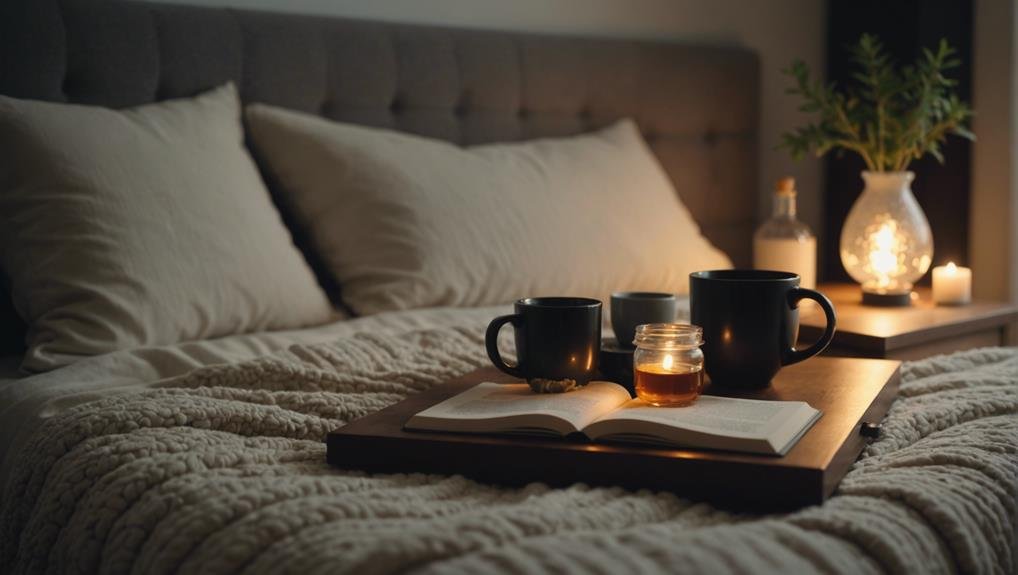Mastering our sleep relies on balancing timing and routine. Aligning bedtime with our circadian rhythm is crucial for optimal rest. Consistency matters—going to bed and waking up at the same time every day, even on weekends, helps regulate our internal clocks. By ensuring we get 7-9 hours of sleep, we benefit from both deep and REM sleep stages.
A nightly routine that minimizes screen time and includes relaxing activities can improve sleep quality. For example, reading a book or practicing gentle yoga can help you unwind. Creating a sleep-friendly environment is another key factor. This could mean investing in a comfortable mattress, using blackout curtains, and keeping the room cool and quiet.
To truly fine-tune your sleep, consider tracking your habits and making adjustments as needed. Apps like Sleep Cycle or products like the Philips SmartSleep Wake-Up Light can provide insights and enhance your sleep experience.
Understanding Sleep Levers
Mastering sleep involves understanding three key factors: intensity, timing, and duration. Our sleep cycles deeply influence how rested we feel. Throughout the night, we transition through various stages, including light sleep, deep sleep, and REM sleep. Deep sleep is crucial for physical recovery and overall sleep quality.
By focusing on these cycles, we can see how intensity affects our rest. Intensity depends on the amount of time spent in deep sleep and REM stages. To improve sleep intensity, we should create a conducive environment with a dark, quiet room and stick to a consistent sleep schedule.
Creating the right environment is important because it helps our body relax and transition smoothly into deep sleep. For example, using blackout curtains can keep the room dark, while a white noise machine can help drown out disruptive sounds. Maintaining a regular sleep schedule trains our body to expect sleep at certain times, making it easier to fall and stay asleep.
Products like weighted blankets can also enhance comfort, promoting deeper and more restorative sleep.
The Role of Sleep Timing
Aligning our bedtime with our natural circadian rhythm is crucial for getting good sleep and feeling well-rested. Our bodies follow a 24-hour cycle, which affects when we feel awake or sleepy. By going to bed and waking up at the same times every day, we can sync with this cycle.
This makes it easier to fall asleep and wake up refreshed. Irregular sleep schedules can mess up our circadian rhythm, causing poor sleep and daytime tiredness. To keep a consistent bedtime, try to stick to your sleep schedule even on weekends.
This routine helps train your body to know when it's time to sleep, leading to better rest and improved health.
Importance of Sleep Duration

Getting enough sleep is vital for our health and daily performance. The amount of sleep we get affects our brain function, mood, and physical health. By managing our time well, we can ensure we get the recommended 7-9 hours of sleep each night, which improves how well we sleep.
When we make sleep a priority, our bodies can go through important sleep stages, like deep sleep and REM sleep. These stages help with recovery and growth, and they also boost our daily productivity and focus.
Good time management helps us balance work, leisure, and rest, so we don't sacrifice sleep. By setting a regular bedtime, we can achieve the ideal amount of sleep and improve our overall well-being.
For example, using a planner or scheduling app can help you organize your day better, ensuring you set aside enough time for sleep. Products like white noise machines or blackout curtains can also enhance sleep quality by creating a better sleep environment.
Prioritizing sleep is a simple change that can have a big impact on your health and daily life.
Enhancing Sleep Quality
To improve sleep quality, we should create a consistent and calming pre-bed routine. This involves good sleep habits like dimming lights, reducing screen time, and engaging in relaxing activities such as reading or meditating.
Aligning our bedtime with our natural circadian rhythm helps our body know when it's time to sleep. Keeping a regular sleep schedule, even on weekends, reinforces this rhythm. Additionally, ensuring our sleep environment is comfortable and free from distractions can greatly enhance our rest. By prioritizing these practices, we can spend more time in deep sleep and REM sleep, improving our overall well-being and daily performance.
For example, using products like blackout curtains can help create a dark environment conducive to sleep. White noise machines can minimize disruptive sounds. Investing in a good-quality mattress and pillows can also make a significant difference in comfort. These changes not only make it easier to fall asleep but also help you stay asleep longer, leading to better rest and increased energy during the day.
Optimizing Power Down Routine

Creating an efficient power down routine can greatly improve our sleep quality and overall well-being. By adopting effective strategies and consistent habits, we can set ourselves up for a restful night.
Here are some practical steps to optimize our power down routine:
- Limit screen time: Avoid using devices that emit blue light at least an hour before bed. This includes phones, tablets, and computers.
- Create a calming environment: Dim the lights and ensure your bedroom is cool and quiet. Using blackout curtains and white noise machines can help.
- Establish a pre-sleep ritual: Engage in relaxing activities like reading a book or meditating. These activities can signal to your body that it's time to wind down.
- Maintain a consistent schedule: Go to bed and wake up at the same time every day, even on weekends. This helps regulate your body's internal clock.
Conclusion
Ultimately, maintaining a consistent sleep schedule is crucial. By syncing our sleep patterns with our body's natural circadian rhythm, we can significantly enhance the quality of our rest.
Establishing a regular bedtime and wake-up time, along with a calming pre-bedtime routine, can lead to more restorative sleep. For example, turning off screens an hour before bed and reading a book instead can signal to your body that it's time to wind down.
By adopting these habits, we can wake up feeling refreshed and ready to start the day.
